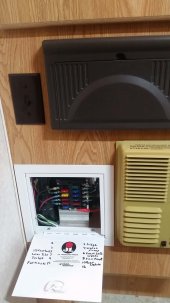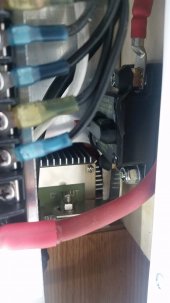TheDude130
New Member
- Joined
- Nov 18, 2019
- Messages
- 20
I am putting together a 48v DIY pack with a Growatt inverter/charger for my towable RV. I plan to use something like this to handle the 12v loads: https://www.amazon.com/dp/B07ML5ZML2/ref=cm_sw_em_r_mt_dp_7SS3443VRMKYC9B77DX1
My question is: should I not put a diode on the the step down converter output to prevent the tow vehicle from backfeeding into this converter? The tow vehicle will wind up being higher voltage than 12v for sure when running, so this seems logical. Or are these devices generally already protected against this scenario? I noticed this was not really covered in Will's design, but I wasn't sure if there was a reason.
My question is: should I not put a diode on the the step down converter output to prevent the tow vehicle from backfeeding into this converter? The tow vehicle will wind up being higher voltage than 12v for sure when running, so this seems logical. Or are these devices generally already protected against this scenario? I noticed this was not really covered in Will's design, but I wasn't sure if there was a reason.




